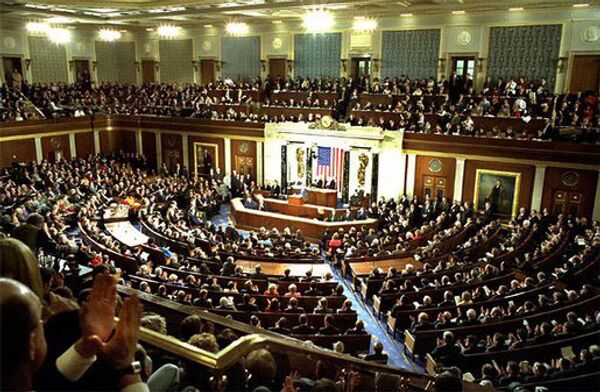Russian Foreign Minister Sergei Lavrov hopes that the U.S. Congress in relations with Russia will be guided by long-term interests of partnership, rather than tactical opportunistic considerations.
"I can only express our sincerest hope that not tactical consideration to outplay the other party in the Senate and in general on the political front will prevail, but an understanding by the United States of its deep national interests, the implementation of which will only benefit from an equal cooperation with Russia," Lavrov said.
U.S. President Barack Obama and Russian President Dmitry Medvedev signed a new arms cuts treaty on April 8 in Prague intended to replace the START 1 agreement that expired in December 2009. The agreement will come into force after being ratified by both chambers of the Russian parliament and the U.S. Senate.
"The term 'reset' reflects an understanding by Obama's administration of the need to change U.S. policy toward Russia," Lavrov said. "We have never tried to build our relations with the United States except on an equitable, mutually respected basis," the foreign minister said.
Lavrov said that with the former U.S. administration, relations between the countries were not very good adding that the environment has changed significantly.
The countries have a number of agreements, including in the creation of a presidential commission and the arms reduction treaty, which "we hope will be ratified this year," Lavrov said.
The Republicans won a solid majority in congressional elections earlier in November. This means it will be more difficult for Obama to secure the ratification of the treaty after the new Congress takes office in January.
The new Russian-U.S. pact obligates both nations to cap their fielded strategic nuclear weapons to 1,550 warheads, while the number of deployed and non-deployed delivery vehicles must not exceed 800 on either side.
The Russian and U.S. presidents earlier agreed that the ratification processes should be carried out simultaneously.
The delay in ratification of a new strategic arms reduction treaty could hamper progress in U.S.-Russian relations, a senior U.S. diplomat said in November.
The treaty has met strong Republican opposition in the Senate over concerns that it may weaken U.S. anti-missile defenses, while the proponents of the treaty insist that the most important part of the accord is that it continues the verification and monitoring regime that expired with the end of the START 1 treaty last year.
SEOUL, November 12 (RIA Novosti)




